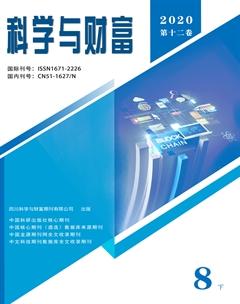A Contrastive Study on Motivation for Learning English Between Spanish And Chinese Undergraduate Students
方理政
Abstract:Recent studies have suggested that various motivation types have impact on the students success in language acquisition.In this article,we compare the instrumental and integrative types of motivation for learning English between Spanish and Chinese undergraduate students.The aim of the study is to compare motivation and language acquisition in these two groups and to observe the predominant type of their learning motivation.
keywords:learning English,motivation,Chinese and Spanish students
INTRODUCTION
Second language acquisition involves not only intelligence but also some other important factors such as motivation types which are claimed to have a great influence on the studentssuccess in language acquisition.Teaching any lan-guage requires a teacher to have certain skills such as the ability to explain com-plex things in a way that is understandable to the students and also the ability to choose particular teaching approach that is compatible with class and does not obstruct the studentslearning activity.The goal of this study is to investigate whether instrumental motivation predominates in both of the groups of learners through drawing a comparison between these two groups.Our hypothesis states that although both Spanish and Chinese students may have instrumental as well as integrative motivations,we strongly believe that instrumental type of motivation will appear to be predominant in both of the groups.
METHODOLOGY
This current study is aimed at investigating the English learning motivation types of Spanish and Chinese undergraduate non-English major students.In this comparative study,there are two groups of participants:the first group consists of fifty Spanish undergraduate students while another group consists of fifty Chinese undergraduate students,100students in total.The participants were both male and female varying in ages between18to30and were selected randomly from Spanish and Chinese universities.Social network and email were used as our primary mean of sending out the questionnaires to different groups of students.
In order to make results more valuable and accurate,the participants select-ed in each group were all non-English majors,for instance,the Chinese partici-pants are studying respectively Tourism and Finance,meanwhile the Spanish group is mostly Sociology,Social Work,and Computer Engineering majors.
The primary main research instrument used in this study is/are‘Likert scale online questionnaires.This questionnaire was adapted from the previous survey used in the study carried out by Ratanawalee Wimolmas(2012),who adapted it from the original seven point Likert Scale format.
The questionnaires were distributed to the Spanish students through social networks via“Google forms”and to the Chinese students through the program“Tencent”.Then,to obtain the results,the programs“Google forms”and“Ten-cent”generated results automatically.
Conclusions
This study indicates that both groups of students appear to have stronger in-tegrative motivation than instrumental one towards English learning.As a result,the most important factors that affect these particular studentsmotivation are the
possibility of communicating in a foreign language,learning about a new culture,achieving a near native pronunciation and integrating into the English speaking society.Spanish students are more pragmatic.They see English as a professional and academic tool.In contrast,for Chinese students being proficient in English is more related to the idea of achieving personal success.
According to the results carried out by this research,it is reasonable to as-sume that there is a number of factors which affect the change of studentsmoti-vation types for learning English.For instance,nowadays,a lot of universities provide many exchange programs,such as Study abroad,Erasmus and Leonardo,with the aim of allowing students to obtain academic and intercultural experience.That is to say,students have more chances to travel and integrate into new cul-tures.All this leads to a shift of studentsmotivation for learning a foreign lan-guage.Therefore,we deem that Globalization could be one of the underlying rea-sons for integrative motivation among undergraduate students in this study.
At the end of this section,it is important to point out that the present re-search could be better in many ways if we take a more careful treatment of data.for instance,considering such independent variables as gender,ethnicity and the sample size.
The findings of this study have implications for teachers to refine their teaching practice.Teachers should take into account the level of studentsmoti-vation during the teaching process.For this reason,it is necessary to know the social and cultural backgrounds of learners,as that determines their primary ob-jectives for learning English.In addition,teachers should focus on activities and topics that enhance studentsmotivation with the purpose to create a pleasant and supportive atmosphere that allows their learning process to be more success-ful.Moreover,teachers should make good use of strategies,methods and tech-niques in order to meet studentsneeds,which is aimed at increasing their self-esteem and motivation.
REFERENCES
[1] Leaver,L.B.,Ehrman,M.,&Shekhtman,B.(2005).Achieving Success in Second Language Acquisition.New York:Cambridge University Press.
[2] Dornyei,Z.(1990)..Conceptualizing Motivation in Foreign-Language Learning.Modern Language Journal,40,45-78.Retrieved December12,2015.
[3] Dornyei,Z.(1994).Motivation and motivating in the foreign language classrooms.Modern Language Journal,78,273-284.
[4] Gass,S.&Selinker,L.(2001).Second Language Acquisition:An Intro-ductory Course.New Jersey:Lawrence Erlbaum Associates.Retrieved Nov27,2015.

